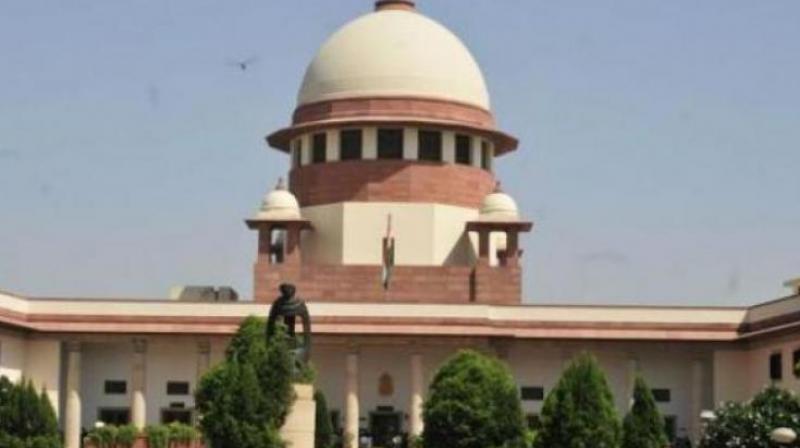Passage as money bill is valid, says SC
The court also held that the passage of the bill as a money bill was valid, another aspect that was challenged by the petitioners.

New Delhi: The Supreme Court on Wednesday, in a majority verdict, held that the Aadhaar (Targeted Delivery of Financial and Other Subsidies, Benefits and Services) Act, 2016, is constitutionally valid, but made it clear that a person’s rights cannot be denied on the ground of lack of the unique ID.
Observing that Aadhaar was meant to help the benefits reach the marginalised sections of society, it said the scheme served a much bigger public interest and shelving it at this stage could harm it
Justice Sikri said the attack of the petitioners is founded on the argument that it is a great risk to the liberties of citizens of this country and has potential to enable surveillance state. To this, Justice Sikri said proportionality is to be adjudged on the basis of the norms such as expectation of privacy, compelling state interest and larger public interest.
On proportionality, certain aspects are needed to be satisfied.
There is valid legitimate aim: Prevention of leakage and pilferage is a valid goal. Justice Sikri said it was satisfied that Aadhaar was a suitable means to achieve these goals.
“Minimal demographic and biometric data of citizens are collected by UIDAI for Aadhaar enrolment and the system is serving much bigger public interest... We are of the view that there are sufficient safeguard to protect data collected under Aadhaar scheme,” it said.
The court also held that the passage of the bill as a money bill was valid, another aspect that was challenged by the petitioners. For the exclusion of a “minimal” three per cent, 97 per cent cannot be denied the benefits of Aadhaar, the Bench said observing, “One can’t throw the baby out with the bathwater.”

